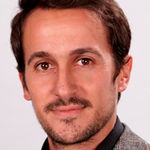We all need a good story once in a while. I had the opportunity over the recent winter break to dive into the realm of old folk and fairy tales, journeys of characters leaving their homes behind to go on an adventure, overcoming obstacles, being patient and being good, fighting against evil, and being transformed. Stories embodying universal human values transmitted over generations through the spoken words, now mostly written words. Stories about hardship and how the world can be unfair.
Reading some of the classic tales from the Brothers Grimm and Hans Christian Andersen among others, I was struck by how disability is most often portrayed as negative. Fairy tales work in metaphors and symbols, helping us conceptualise and put in perspective a world which may seem unfair and harsh. But the adoption of disability as a symbol of vulnerability or even worse, curse, wasn’t progressive and has likely led to further entrench negative attitudes towards people with disabilities, a reflection of the attitudes at that time.
The book Disfigured: On Fairy Tales, Disability, and Making Space by Amanda Leduc analyses that aspect in more detail and helps us look at fairy tales from a different angle (as developed in this article: What if the Little Mermaid learns sign language and begins to communicate with her prince after all?).
In The Little Mermaid published in the 19th century, a mermaid falls in love with a handsome prince she has saved from a shipwreck. But she is a mermaid living under the sea and he is a prince living on the land. For her to meet the prince again, she enters into a terrible pact with the Sea Witch: the mermaid’s tongue needs to be cut out in exchange for a pair of brand new human legs. Awfully, the witch also gets to keep the little mermaid’s beautiful singing voice, so from now on the mermaid will be mute when she meets the prince. Long story short, things don’t end too well between the mermaid and the prince, who decides to marry another princess more like him.
In The Little Mermaid as in many western fairy tales, “the physical ability of a character becomes a way to accentuate a character’s moral virtues or other positive traits but also… signifies evildoers or further ostracises the marginalised” and “a disabled person can only find a happily ever after without their disability becoming eradicated.”[1] Even in fairy tales, the happily ever after world is not accessible to everyone; and such exclusive narratives contribute to the idea that people with disabilities don’t “fit in”.
Now, the good thing about stories and folk tales is their organic dimension. Before they were fossilised through printing and publications for sharing more widely, many stories were part of the oral tradition of bringing people together and “grew and changed with each retelling, their elements shifting as the societies in which they were told also shifted”[2]. Since the days of Hans Christian Andersen, there has been change and progress, although unequal, on disability rights and attitudes worldwide; and disability studies have helped to redefine common conceptions of disability, with the social model of disability. As a result more inclusive stories have appeared, stories being told as lived experiences for those who can also identify with them.
Digital inclusion is a catalyst for the emergence of authentic stories which can further lead to social change and new ways of viewing the world. During an age where personal computers have shape shifted into smartphones, the truly assistive and transformative potential of digital tech can be unleashed for everyone’s benefits, for everyone to participate, share their views and have a voice. Yet the digital space remains inaccessible for a majority of the one billion people with disabilities and the current pandemic has exacerbated the existing divide for those unable to connect; mainly because services and platforms are often not designed with everyone in mind, or out of reach because of their high costs, or because people are not aware or not trained to be digitally savvy.
Accessibility is part of the human experience so if we are to build back better in 2021 (as many are saying), we fundamentally need to build and create together. This means fostering empathy and challenging stereotypes and stigma, focusing on universal design, replacing short term thinking with long term approach, to name a few. Creating more accessible products and services benefits everyone, stimulates innovation and opens new opportunities.
Last year, by collecting data on the mobile disability gap, conducting disability strategy workshops with mobile operators and publishing the Principles for Driving Digital Inclusion, the GSMA Assisitive Tech team have started to put in place a framework for inclusion aimed at building bridges between operators and their customers (or yet to be) with disabilities, to understand needs, requirements and challenges to connect. This coming year, we will continue to further our engagement with operators, advocate for the implementation of global digital and mobile accessibility strategies, as well as disability representation in the mobile industry, support innovative ideas through the GSMA Innovation Fund for Assistive Tech.
The journey towards accessibility and inclusion is a transformative one and it can feel like an unknown territory for many organisations, but our work builds and adds to all those already active in this space, individuals and organisations, partners who are focusing on similar long term goals. This is also a journey for the GSMA to challenge its own tropes and develop more inclusive actions, and benefit from the knowledge and support from partners such as The Valuable 500, putting disability on the leadership agenda.
I’m curious to know what stories will emerge this year at a time when our interactions still mainly happen through screens, and I’m looking forward to making new connections, listening and reading the diversity of voices that will increasingly appear online.

[1] https://bookriot.com/fairytales-and-disability/
[2] https://uncannymagazine.com/article/the-blind-prince-reimagined-disability-in-fairy-tales/


